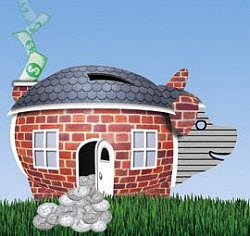The FHA finalizes updates to reverse mortgage debenture interest rates, a decision that significantly impacts many aging homeowners looking to tap into their home's equity. As the Federal Housing Administration moves forward with these changes, it’s crucial to understand what these updates mean for both the industry and consumers alike.
Understanding the intricacies of reverse mortgage debentures can seem daunting, yet they hold major implications for financial planning, especially for seniors. This change arrives at a pivotal time when the demand for reverse mortgages continues to grow as more retirees seek ways to fund their retirement through home equity.
FHA Finalizes Updates to Reverse Mortgage Debenture Interest Rates
Key Takeaways:
- Implementation Date: The new rules will take effect on September 28, 2024.
- Increased Flexibility: The updates aim to provide greater flexibility and accessibility for older homeowners considering reverse mortgages.
- Market Stability: These changes are expected to stabilize the reverse mortgage market by aligning debenture rates with current economic conditions.
- Consumer Outreach: The FHA is expected to enhance outreach efforts to ensure homeowners are informed about the new guidelines and their options.
Understanding FHA's Role and the Updates
The Federal Housing Administration (FHA) is a pivotal player in the realm of reverse mortgages, specifically through the Home Equity Conversion Mortgage (HECM) program. This program allows seniors to convert a portion of their home equity into cash, which can be an essential resource for those facing financial challenges in retirement.
In July 2024, the FHA proposed updates to the debenture interest rates that serve as the basis for the insurance premiums paid by borrowers in the HECM program. After careful consideration and responses from the industry, the FHA finalized these updates just last week. This decision reflects ongoing efforts to ensure that reverse mortgages remain a viable option for retirees seeking to enhance their financial independence (HousingWire).
Details of the Update
The finalized rule modifies the way interest rates on debentures are calculated. Specifically, the FHA aims to:
- Adjust Rate Calculation: Implement a more straightforward method of calculating the debenture interest rates, which will ultimately lead to more predictable costs for consumers.
- Alignment with Market Conditions: The updates are designed to ensure that the rates are more in line with current economic conditions, thereby making reverse mortgages a more attractive option during fluctuating interest environments.
- Streamline Process: These changes are anticipated to streamline the administrative processes surrounding HECM loans, potentially expediting the approval process for eligible seniors.
This regulatory shift is particularly relevant given the backdrop of rising home values and the increasing number of retirees seeking financial solutions that leverage their home equity.
Impacts on Stakeholders
For Homeowners:
The updates to reverse mortgage debenture interest rates signify a considerable shift for seniors who may be considering this financing option. With the potential for lower costs and increased flexibility, more homeowners may opt for reverse mortgages as a means to supplement their retirement income. This could prove invaluable for those on fixed incomes or facing unexpected medical expenses.
- Greater financial security and peace of mind could be achieved as seniors navigate their financial futures with newly accessible resources.
For Lenders:
Lenders engaged in the HECM space will also experience changes as a result of these updates. The alignment of debenture rates with market conditions can lead to a more stable lending environment, fostering increased confidence among lenders and potentially leading to a greater willingness to approve HECM loans.
- Predictable costs will help lenders manage their portfolios more effectively while continuing to serve their clientele with professionalism and transparency.
For Industry Advocates:
Organizations advocating for senior housing and financial rights may find themselves in a unique position to promote these updates. By emphasizing consumer education, they can help alleviate misunderstandings about reverse mortgages.
- Educational campaigns will be essential to inform seniors about their options and how best to utilize the benefits of the new regulations.
Marketplace Reactions
Already, key stakeholders are expressing optimism about the finalized updates. Many industry experts believe that these adjustments could send a positive signal to the market, demonstrating that the FHA is committed to adapting its policies to meet the needs of aging Americans and promoting the benefits of home equity.
The feedback from industry professionals indicates a welcoming attitude toward these changes. Lenders anticipate smoother transactions and enhanced engagement with potential borrowers.
Moreover, consumer advocates emphasize the importance of continuing education, suggesting that upcoming seminars and webinars could play a vital role in familiarizing seniors with the new regulations and their implications.
Challenges Ahead
Even with these positive developments, challenges remain. Some seniors may still be hesitant to fully embrace reverse mortgages due to misconceptions surrounding the terminology and process. Additionally, the complexities of HECM loans can serve as barriers to entry for potential borrowers.
Addressing these concerns requires robust educational initiatives designed to break down the stigmas associated with reverse mortgages. Ensuring that seniors and their families understand both the pros and cons of these financial products will be integral to the successful implementation of the updated guidelines.
Conclusion
The FHA finalizes updates to reverse mortgage debenture interest rates as a pivotal moment in the ongoing conversation about financial solutions for aging Americans. As these updates take effect, FHA hopes to not only stabilize the market but also empower senior homeowners with the resources they need to thrive. As individuals in their golden years seek new ways to support their financial wellbeing, a more transparent and adaptable reverse mortgage framework may very well provide the lifeline many need.
While the journey of understanding these changes is just beginning, it is undoubtedly a step towards enhanced financial security for seniors everywhere.


 A reverse mortgage (or home equity conversion, as it is sometimes called) involves selling the equity in a home while retaining the right to live in that home until death (a life estate). It turns a home's equity into regular cash payments.
A reverse mortgage (or home equity conversion, as it is sometimes called) involves selling the equity in a home while retaining the right to live in that home until death (a life estate). It turns a home's equity into regular cash payments.
